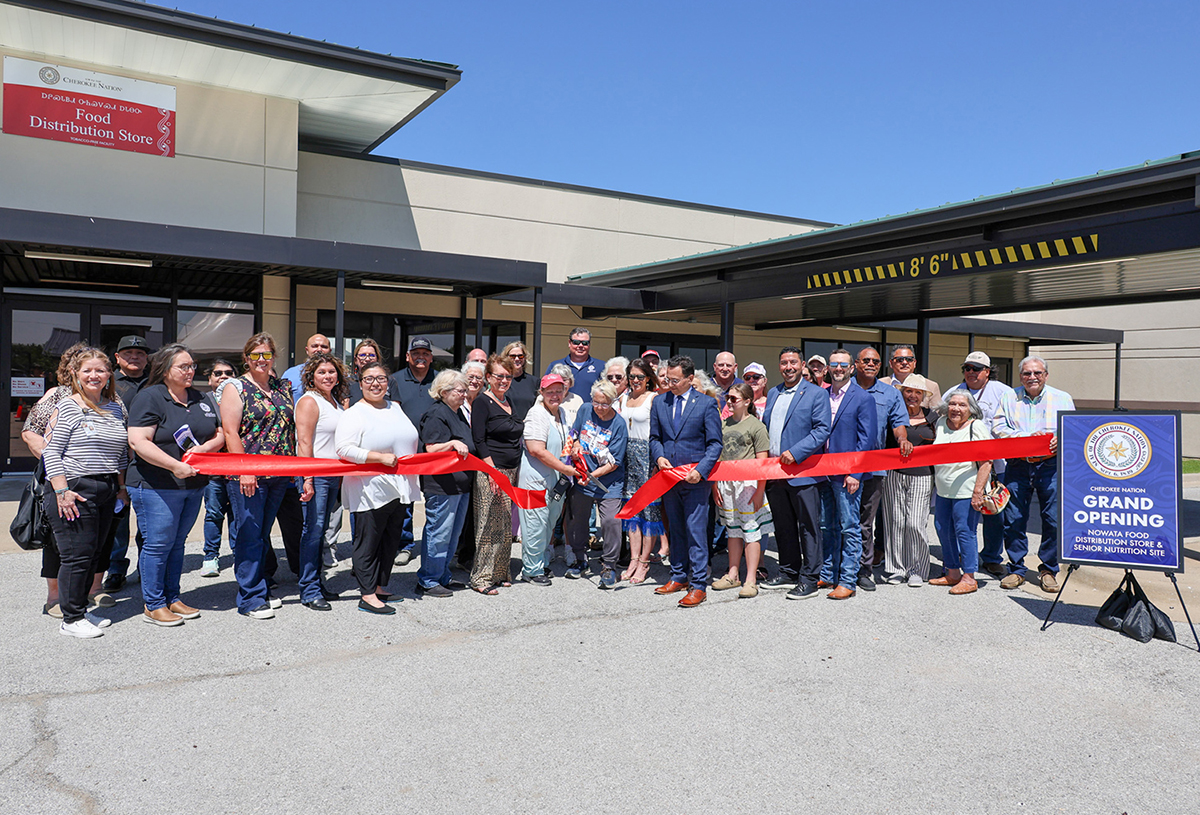
- Details
- By Chuck Hoskin Jr
Guest Opinion. Across the Cherokee Nation Reservation, the summer months are a time of family vacations, community festivals, and many other opportunities for Cherokees and our friends and neighbors to gather together. Just as important, the season is an important time for our tribal nation to live out the value of ensuring our most vulnerable citizens, including elders and youth, always have access to healthy, nutritious food. These programs provide more than just meals; they deliver on the promise of a responsible government to serve its citizens with compassion and vision.
This summer, Cherokee Nation is launching a new Senior Farmers Market Nutrition Program to help elders access fresh, locally grown foods. Eligible citizens over 55 who meet income guidelines can receive a $100 prepaid card to use at participating farmers markets across the reservation. Our Public Health team plans to serve about 5,000 elders with this initiative, funded by the tribe’s Public Health and Wellness Fund. With this investment we aim to support the health and independence of our elders and strengthen our connection to traditional foods and local agriculture.
Similarly, Cherokee Nation's WIC Farmers Market program offers that same access to fresh foods to families with young children. Through this USDA grant-funded initiative, eligible participants receive pre-loaded benefit cards to purchase produce at participating farmers markets across the 14-county reservation. It is a way to promote healthier habits for families and create better eating choices for a lifetime. Additionally, Cherokee citizens who are WIC Farmers Market participants will receive an extra $150 benefit per family funded by the Cherokee Nation. This provides an opportunity for families to have access to healthy food options and interact with the famers who grow those foods in their community.
Another critical program is the Summer EBT initiative, which gives eligible families extra food assistance while school is out of session. No child should have to face an empty plate during the months when school cafeteria meals are unavailable. Just like previous years, Cherokee Nation is stepping up to provide benefits of $120 per child to all eligible families within the reservation.

While state leaders in Oklahoma inexplicably chose again not to participate in a program that brings federal dollars to our state, the Cherokee Nation remains committed to filling that gap. The program is expected to serve about 50,000 children across our reservation, reflecting our deep commitment to child wellness and food security. Although federal law bars us from serving our at-large citizens, thousands of them are eligible based on residency in other participating tribal nations or states.
Cherokee Nation is committed to eliminating barriers to healthy food, streamlining benefits and forming collaborative partnerships to feed our people. Making sure everyone has nutritious food is a basic responsibility and a core value of the Cherokee Nation. Growing and preparing food, and sharing it with our friends and families, will always be a cornerstone of Cherokee life and culture.
Across generations, these programs embody what it means to care for one another as relatives and neighbors. They remind us that good government is rooted in service and empathy. We affirm our collective belief that no Cherokee should go hungry — not now, not ever.
Chuck Hoskin, Jr. is the principal chief of the Cherokee Nation.
More Stories Like This
The SAVE America Act Threatens Native Voting Rights — We Must Fight BackThe Presidential Election of 1789
Cherokee Nation: Telling the Full Story During Black History Month
Jesse Jackson Changed Politics for the Better
Native News Online at 15: Humble Beginnings, Unwavering Mission
Help us defend tribal sovereignty.
At Native News Online, our mission is rooted in telling the stories that strengthen sovereignty and uplift Indigenous voices — not just at year’s end, but every single day.
Because of your generosity last year, we were able to keep our reporters on the ground in tribal communities, at national gatherings and in the halls of Congress — covering the issues that matter most to Indian Country: sovereignty, culture, education, health and economic opportunity.
That support sustained us through a tough year in 2025. Now, as we look to the year ahead, we need your help right now to ensure warrior journalism remains strong — reporting that defends tribal sovereignty, amplifies Native truth, and holds power accountable.
 The stakes couldn't be higher. Your support keeps Native voices heard, Native stories told and Native sovereignty defended.
The stakes couldn't be higher. Your support keeps Native voices heard, Native stories told and Native sovereignty defended.
Stand with Warrior Journalism today.
Levi Rickert (Potawatomi), Editor & Publisher

